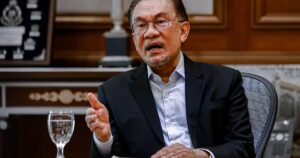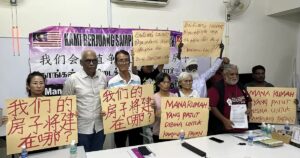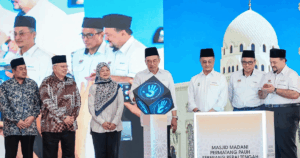
An unexplained wealth order (UWO) could be a powerful tool in the fight against corruption—but enacting legislation for it could be fraught with challenges, says an anti-graft advocate.
Transparency International Malaysia (TI-M) president Raymon Ram said securing parliamentary approval for a UWO would be difficult, as the mechanism itself appears to undermine fundamental legal principles.
“MPs who might be subject to a UWO might vote against such a law,” he told FMT.

Raymon explained that under the UWO, the burden of proof is shifted onto individuals to justify their wealth. This contradicts fundamental legal principles, including the presumption of innocence, he added.
Under established legal principles, the burden of proof typically rests with the claimant or prosecutor, and every individual is presumed innocent until proven guilty.
Nevertheless, Raymon acknowledged that UWOs have “remarkable potential” in the area of asset recovery and could complement laws such as the Malaysian Anti-Corruption Commission Act 2009 and the Anti-Money Laundering, Anti-Terrorism Financing and Proceeds of Unlawful Activities Act 2001.
He said any legislation enacted should frame the UWO as a civil mechanism — similar to the UK model — to avoid potential constitutional challenges, while still equipping enforcement agencies with meaningful powers.
He also said that there was need for judicial oversight to prevent abuse.
“A new UWO system must be built with checks and transparency so it isn’t used or weaponised against political opponents,” said Raymon.
On Saturday, former Klang MP Charles Santiago urged the government to introduce legislation for the issuance of UWOs to tackle illicit wealth and systemic corruption among the elite.
He said the UK recovered £62.9 million (RM390 million) in a single year through the order and related civil actions.
Citing official estimates, Santiago said Malaysia lost RM277 billion to fraud, procurement abuse, and illicit flows between 2018 and 2023, or RM55 billion annually, that could have funded schools, hospitals, and food aid.
However, Center to Combat Corruption and Cronyism chief executive officer Pushpan Murugiah cautioned that the UWO was “not a silver bullet that can solve all problems related to corruption”.
“UWOs do not curb corruption by preventing the commission of corrupt acts or addressing the root causes of corruption. It merely provides an easier and faster path towards asset recovery to an extent,” he said when contacted.
He also described the UWO as a form of civil forfeiture, characterising it primarily as an investigative tool designed to secure a civil recovery order by reversing the burden of proof.

Pushpan also pointed out that UWOs are used sparingly in the UK, with investigating agencies reluctant to invoke the law in cases involving complex asset structures. This was on account of the high legal costs they would become liable for if the UWO is overturned.
He also said the obscuring in Malaysia of assets through the use of layers of shell companies and proxies may become a major barrier to the adoption of UWOs locally.






